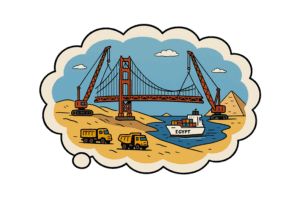The Turkish language
Turkish is a prominent language belonging to the Turkic language family. It’s the most widely spoken of the Turkic languages and has a rich history and vibrant presence in various regions.
Brief History of Origins:
- Turkish originated in Central Asia and was spoken by several Turkic tribes.
- For centuries, Ottoman Turkish, a blend of Persian, Arabic, and Turkic elements, was the official language of the Ottoman Empire.
- Mustafa Kemal Atatürk initiated the language reform in the 1920s to modernize Turkish, moving it from the Arabic script to the Latin alphabet. This marked the beginning of Contemporary Turkish.
Number of Speakers:
- Native Speakers: Approximately 80 million people speak Turkish as their first language.
- Second Language Speakers: Around 15 million people speak Turkish as a second language.
Where It Is an Official Language:
- Turkey: The official language.
- Cyprus: One of the official languages, along with Greek.
- The Turkish Language is also used in countries such as Bulgaria and Greece
Example of Text:
Turkish: “Her insan özgür, onur ve haklar bakımından eşit doğar.”
English Translation: “All human beings are born free and equal in dignity and rights.”
Where It Is Used and How:
- In Turkey: Used in government, education, media, and daily communication.
- In Cyprus: Used in government and community interactions.
- Diaspora: Spoken in various communities worldwide, including parts of Europe and the US.
- Cultural Exchange: Turkish literature, music, and film have contributed to its global presence.
Examples of English Words That Are Used in Turkish:
- “Komputer”: Computer
- “Telefon”: Telephone
- “Internet”: Internet
Turkish Words That Have Been Absorbed into English:
- “Yoghurt”: A dairy product known as “yoğurt” in Turkish.
- “Bazaar”: A market derived from the Turkish word “pazar.”
- “Tulip”: Originated from the Turkish word “tülbent,” referring to a turban, which the flower resembles.
The Turkish language has a rich heritage and is a prominent language in the modern world. The transition from Ottoman Turkish to Modern Turkish marks a significant part of its history. With the influence of English and its impact on other languages, Turkish serves as a symbol of the cultural melting pot and offers a unique linguistic experience. Its widespread use in Turkey, Cyprus, and various international communities highlights its importance on the global stage.
Our translation services - FAQ
Do you use native translators?
Yes, always. All our translators are native speakers and most are still resident in their native country. We pride ourselves on ensuring that all Brightlines’ translators are native. We do not accept applications from non-native candidates or allow them to register on our online recruitment database. All our translators are rigorously tested.
How long will the translations take?
The turnaround for the translation will depend on the word count. As a rough guide, assume that the translators can comfortably process about 2500 words of non-specialised text per day. Proofreading can effectively be completed on a basis of 4000-6000 words a day. Our minimum turnaround time is usually about three days, although it is possible to shorten this if you are in a rush for the final files and we will always be happy to discuss this with you.
What is the variation in your translators’ experience and qualifications? Are they native speakers? Will the cost increase if we use a more experienced translator?
All our translators have to go through a series of tests to make sure they are as good as they say they are, and only if they pass are they allowed to work for Brightlines. There is quite a range of experience and qualifications, but all translators have a minimum of five years’ experience. All translators translate into their mother-tongue without exception and are generally based in-country so they are up-to-date with the local language. We match translators with projects/clients depending on the subject matter, and most of our translators have industry experience in their speciality – there is no better experience than being immersed professionally in the industry they specialise in. Our costs are based on translator experience, speciality (i.e. medical, creative, scientific) and the language choice.
Which languages can you translate into?
We have an extensive database with hundreds of trusted and tested translators covering all commercial languages. If you cannot see the language or dialect you need please ask.
I don’t know the word count; can you base the quote on the number of pages?
Our pricing structure is based on a rate-per-word, but we can estimate from a page count. If we can’t see the source document then we would usually estimate between 300 – 500 words a page depending on the density of the text and the presence of photos and images.
Does the translation need to be proofread?
Brightlines is an ISO 9001:2015 certified company. This means that quality is safeguarded. We adhere to the “four-eyes principle” and translations are always checked by a second professional proofreader (who is not the translator). If the translation is for internal use and reference purposes only (i.e. not to be published, distributed or used in a court of law), or you simply don’t wish to have proofreading, we can remove the proofreading stage.
Get in touch
If you need Turkish translations, get in touch with our team, or get a quick quote.






